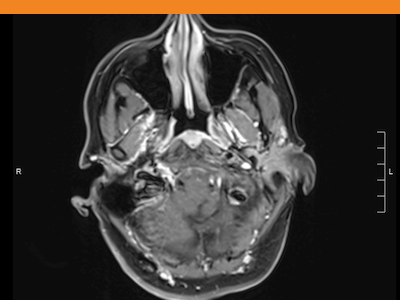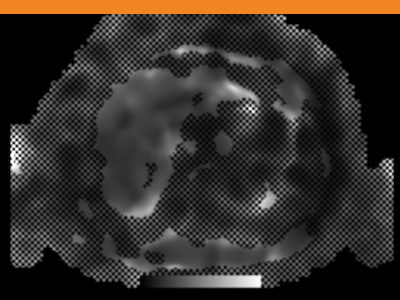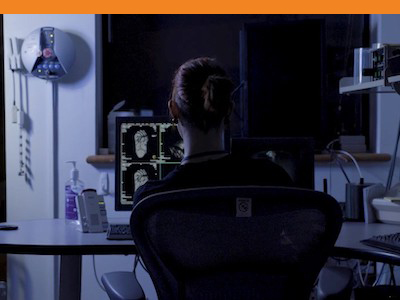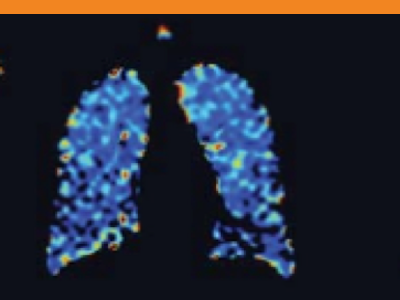MISSION & PROJECTS
The Center for Advanced Magnetic Resonance (MR) Development (CAMRD) is a research facility of the Department of Radiology at the Duke University Medical Center (DUMC). The Center operates as one of Duke’s core labs and is fully equipped to perform research MR imaging and spectroscopy studies on humans or large animals.
The main resource of the center is a whole-body, 3 Tesla (Siemens Prisma) MR imaging and spectroscopy system with full research capabilities including:
- An 80mT/m @ 200T/m/s gradient system for significantly increased SNR, long-term stability, and minimized acoustic noise
- Fully dynamic parallel transmit with TimTX TrueShape for advanced excitation schemes
- Tim 4G RF system with 48, 64, or 128 independent channels for faster imaging and higher SNR
- A full complement of 1H receive coils for neuro, body, msk, and other applications
- An assortment of coils for imaging and spectroscopy experiments of different nuclei, including 1H, 13C, 19F, 31P, and 129Xe
- Advanced higher order shim
- Advanced pulse sequence capabilities including DWI, SWI, BOLD, dynamic angiography, perfusion, DTI, and Diffusion Spectrum Imaging (DSI)
- Advanced multi-dimensional parallel imaging and multiband sequence variants for highly accelerated acquisition schemes.
- A suite of equipment for fMRI task presentation:
- MR-compatible 4K display and mirror system for visual stimulus presentation
- MR-compatible headphones for audio stimulus presentation
- Scanner TTL pulse receiver/transmitter to synchronize MR image acquisition and task presentation
- MR-compatible BIOPAC MP160 for peripheral physiology monitoring and recording, including respiration belt, finger photoplethysmogram (PPG), and skin conductance electrodes
- Specialized applications for liver imaging including T1mapping and MR elastography
- Siemens MR Idea software for pulse sequence coding and development
The Center’s staff has extensive experience imaging challenging patient populations, including pediatric patients and patients under admission with varying levels of consciousness.
Live animal imaging is also routinely performed at the Center. The facility has a dedicated entrance for animal entry as well as available space for animal sedation and preparation prior to imaging.

GUIDELINES
Routine safety and preparation guidelines for study teams and researchers can be found here.

SCHEDULE
Review our scheduling process to ensure we get your patient scheduled as promptly as possible.
SUBMIT A PROJECT
CAMRD APPROVAL PROCESS:
- CAMRD Review Committee meets once per month.
- Project needs to be submitted by the end of month prior to next scheduled meeting.
- Click here to submit a new project. Please include a copy of the finalized imaging manual and study protocol, and ensure the ‘Study Contact’ name and email is correct. This person will be the one who receives correspondence from REDCap (confirmations and future renewals). Additional Information can be found here.
- Funding source needs to be included (i.e. copy of grant application or fund code).
- Review of project application does not require IRB approval; however, study activities in CAMRD will not begin until the IRB approval occurs.
- Scan time for projects with IRB and CAMRD committee approval can be scheduled by contacting our MRI Technologists by email: CAMRD-technologists@dm.duke.edu or phone: 919.684.7400
- Additional information on scheduling process and facility usage can be found here: CAMRD Guidelines
PROJECT RENEWAL:
- Renewal for CAMRD study projects occurs annually.
- A REDCap renewal application will be sent to the main study contact person starting 30 days prior to IRB expiration date.
- It’s important to provide CAMRD with up-to-date study personnel information. Contact: CAMRD-technologists@dm.duke.edu with any personnel changes to ensure REDCap renewal survey is sent to the team.
- If no renewal application is received by the Committee, it will be assumed that the project has been completed or closed.

